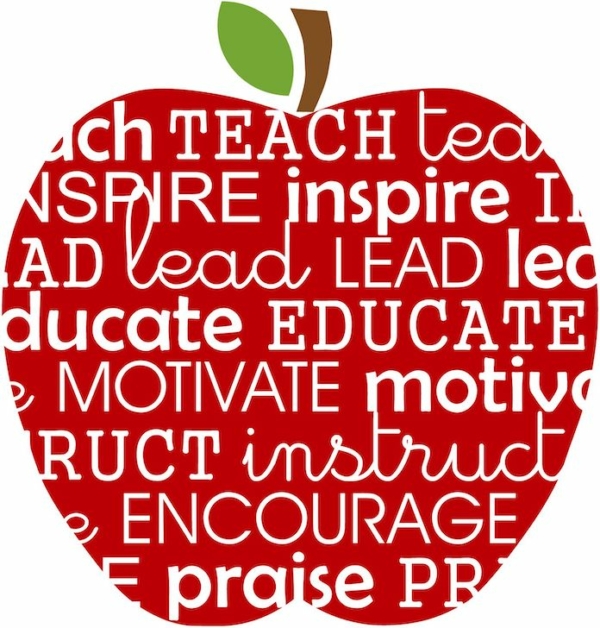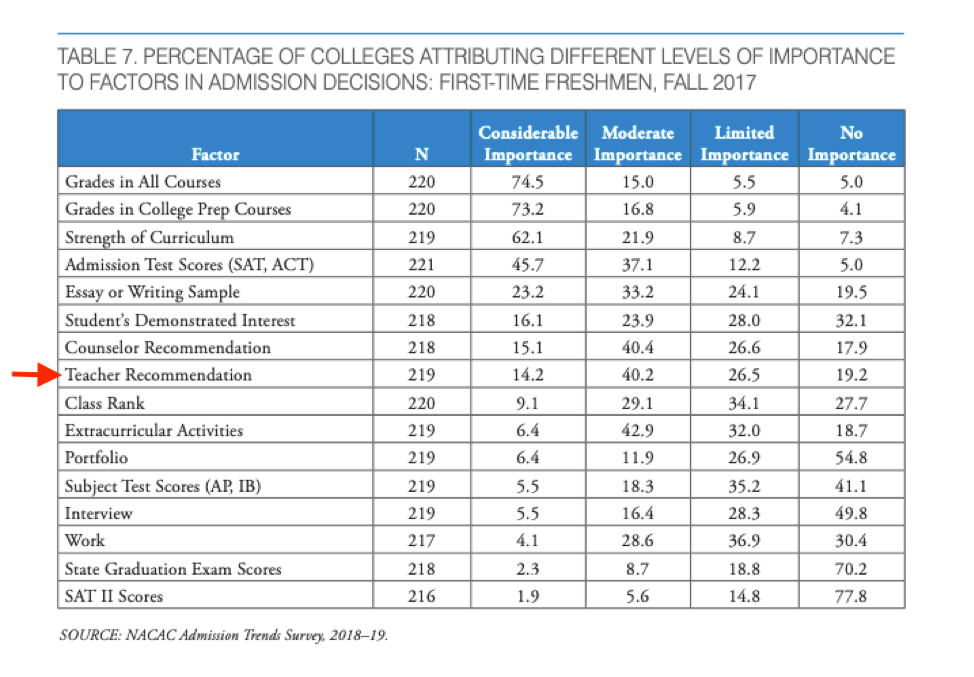At various points throughout your high school tenure, you will be asking teachers for letters of recommendation. Academic summer programs, internship opportunities, part-time jobs, scholarship applications, and your eventual college applications will typically ask for letters of support from those that can speak to your work in the classroom and in the broader school community.
Especially with teachers, it’s never too early in high school to build these relationships in ways that are meaningful for you and your teachers.
STAYING ENGAGED IN THE WAKE OF COVID-19
Juniors applying to college this fall have a special challenge. In light of school closures and virtual learning, how do you stay engaged and connected to teachers who will write your college recommendations? This is not the time to check out for the rest of the school year. We are all stressed and anxious about the uncertainty in the world around us, but you can control the time and energy you devote to your virtual classrooms. Staying connected helps you lay the groundwork for strong and enthusiastic letters of recommendation.
WHAT ROLE DO TEACHERS’ RECOMMENDATIONS PLAY IN THE SELECTION PROCESS?
Before diving into how to build connections with your teachers, it’s helpful to understand the role their recommendations play in the selection process, particularly at the highly selective colleges and universities that practice holistic review.
The vast majority of students applying to top colleges will have strong records of academic success in their schools’ most challenging programs. Rigor of courseload combined with class rank is the number one factor in the admissions process cited by admissions officers. Because of their academic success in the classroom – whether through innate ability, a strong work ethic, or both – their transcripts will look remarkably similar, especially after an admissions reader boils down their work in a handful of short phrases: “straight As in school’s top load,” “more As than Bs as program get harder,” “slight downward trend as program gets tougher,” “BC Calc is Achilles heel; rest of grades are tops.”
That’s it. Your three plus years of high school boiled down by an admissions reader to its essence.
THE IMPORTANCE OF TEACHER RECOMMENDATION LETTERS
Thankfully, admissions readers know that to make the nuanced and complex decisions, they need to look further, to understand who you are as a student in a classroom and the broader school community. That’s where your letters of recommendation come into the picture. Narratives from teachers (most top colleges require two letters from two different teachers) give admissions readers greater insight into you the student and school citizen than your grades ever could. Are you the person in class who sparks class discussion with provocative questions? Do you write papers that your teachers hold up as models of creative flair or critical analysis? Are you the lab or project partner who always goes the extra mile to ensure your team’s success? Do you read beyond the class syllabus in search of greater understanding and context for the class assignment? Do you make the classroom, and by extension, the school community, a better place? These are the kinds of things admissions officers are looking for as they read your letters of recommendation.
Juniors, you can be certain that teachers will include reflections on how you stayed academically engaged as your school moved all its learning online. In spite of the challenges we all faced in adapting to our new reality, they will likely share anecdotes about how you found ways through Zoom, Google Classroom, email, texts, etc., to show how you connected with them and continued to grow as a scholar. They’ll likely talk about your resilience, tenacity, and creativity—how you went above and beyond in your assignments and independent work. What can you do now to show your teachers these very qualities?
NO, REALLY. HOW IMPORTANT ARE TEACHER RECOMMENDATIONS?
In a survey conducted by the National Association of College Admissions Counselors, a group comprised of both admissions officers and high school counselors, here’s a snapshot of the importance of teacher recommendations relative to other parts of an application:
54 percent of admissions offices surveyed responded that teacher recommendations are considerably or moderately important. In terms of considerable importance, recommendations rank above class rank, extracurricular activities, and AP, IB, and subject test scores. Your teacher recommendations are right up there with your own essays.
Keep in mind that the survey reflects a broad range of colleges—from the most selective to those with more generous admissions policies. From our experience in admissions, you can be certain the relative importance of recommendations would undoubtedly be higher.
It’s very likely that letters of recommendation will play an even bigger role in the next admissions cycle, especially when grades are pass/fail and test scores have been waived. The specific anecdotes teachers share about your love of learning, resilience, willingness to stretch yourself, and your role in making the classroom a shared learning environment will set you apart.
HOW TO BUILD RELATIONSHIPS WITH TEACHERS
So, knowing how recommendations are used in the selection process, how do you build relationships with teachers so that they can write letters replete with meaningful, personal, and distinctive praise for your work and contributions? It’s actually easier than you think.
- It’s a good idea to get to know your teachers and build relationships with them before you need to ask them for letters of recommendation. Even as a high school freshman, you should be an active student in the classroom. This doesn’t mean you have to be the most talkative. Instead, you should always work to excel in class, seek help and guidance when you have questions, be a regular participant in discussion, and stretch your learning beyond the end of the class period. You want to show your teacher that you truly care about learning – not just as a means to an end (a grade or college).
- Now that you’re home and school will likely not reopen this academic year doesn’t mean you can’t continue to build these relationships. If your teachers use Zoom or Google meetups, be an active participant in the virtual class discussions. Do your teachers hold virtual office hours? Sign up for a slot, whether you have a question or not. Talk about something interesting you’ve read related to the class assignment, share an anecdote from life at home, and ask teachers how they are doing at this challenging time.
- You should also find ways to cultivate relationships with teachers outside of class. Many of your teachers will lead extracurricular activities, coach teams, direct plays and musicals, and mentor students in all kinds of ways.
Remember that teachers have busy lives outside of school as well—families of their own, stacks of homework to grade—and often put in long hours. An engaged student, who’s eager and prepared to participate in class, and makes a point of thanking teachers and asking how they are doing, will always brighten their day. Most of them probably became teachers because they remember that one teacher who instilled in them a passion for learning—and they want to share that passion with you.
HOW TO APPROACH TEACHERS FOR RECOMMENDATIONS
Juniors, listen up! The time to approach teachers for college recommendation letters is essentially now. This spring, you will want to have identified two teachers of academic subjects (ideally from junior year) to showcase your wonderful qualities as a student and school citizen.
Teachers will be asked to write 5-50 recommendations each year. This is not an easy task, especially for those teachers who invest significant time and energy into mentoring students and want their letters to reflect more than just your grades in their classes.
Andrew Simmons, a teacher in California, writing in an article titled “The Art of the College Recommendation Letter” for The Atlantic in 2014, nails it:
“Writing a meaningful letter of recommendation takes time, a luxury that teachers don’t have . . . My job is not to draw big neon circles around a student’s achievements so that an admissions officer will pay more attention to them. Instead of bragging on behalf of the student, I want to render human the person admissions officers may view as a collection of letters and numbers, to say what those grades and scores cannot. A recommendation letter can discuss the academic and, when relevant, personal challenges a student has faced. It can clarify a student’s learning style and distill what he or she brings to a conversation about an academic topic. After all, colleges are trying to build classes of students, not simply usher in as many high-scoring kids as fate will permit. A recommendation, when it is done right, highlights, instead of purely the triumphs, the intangibles in a student’s application.”
You can help your teacher write their very best letter on your behalf. Even if they know you well, it’s a good idea to take time to speak with them. Find a moment after class to ask if you could set up a time to meet with them to talk about your college aspirations. Come prepared to that meeting with a list of colleges you’re considering (even if its preliminary), some thoughts on what appeals to you about those schools, and share what you think you’d like to study. By the way, this is a good time to ask them for their perspectives on different fields of study!
Since your teachers may not have a full sense of all you do outside of their classrooms, put together a condensed activity sheet or resume (no more than two pages) that highlights your involvements, awards, and accomplishments. Don’t forget that your lives include things you do beyond the school campus, so include hobbies, service, part time jobs, and family responsibilities, too.
TEACHERS: YOUR MENTORS AND ADVOCATES
Remember: the best recommendations are engaging because of the personal anecdotes included in them. That’s what admissions officers will be looking for as they read these letters.
After (virtually) meeting with your teachers, send them a thank you note (email is fine). Most colleges these days will have you list the teachers’ names and email addresses in the Common Application or counseling portals like Naviance. Once the college application season begins in earnest (timed with the Common Application’s August 1 opening day), teachers will get emails from the online systems with instructions on how to submit their letters for you. But, since many teachers will use time in the summer to write recommendations, be sure to talk with your teachers before the end of the school year.
By the way, did you catch that your teachers will likely use their summer to write your recommendation letters? If that’s not indicative of how much they care about your future, we don’t know what is.
- College Admissions: The Year in Review - December 27, 2023
- First Look: Class of 2028 Early Application Trends - December 7, 2023
- Should I Submit My SAT Score? - October 24, 2023


